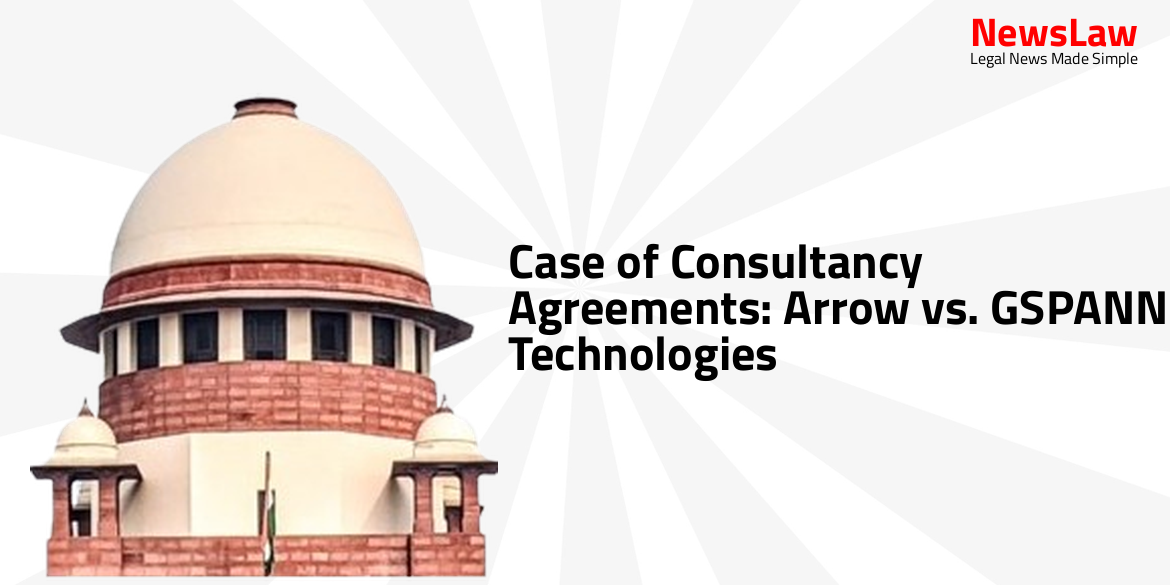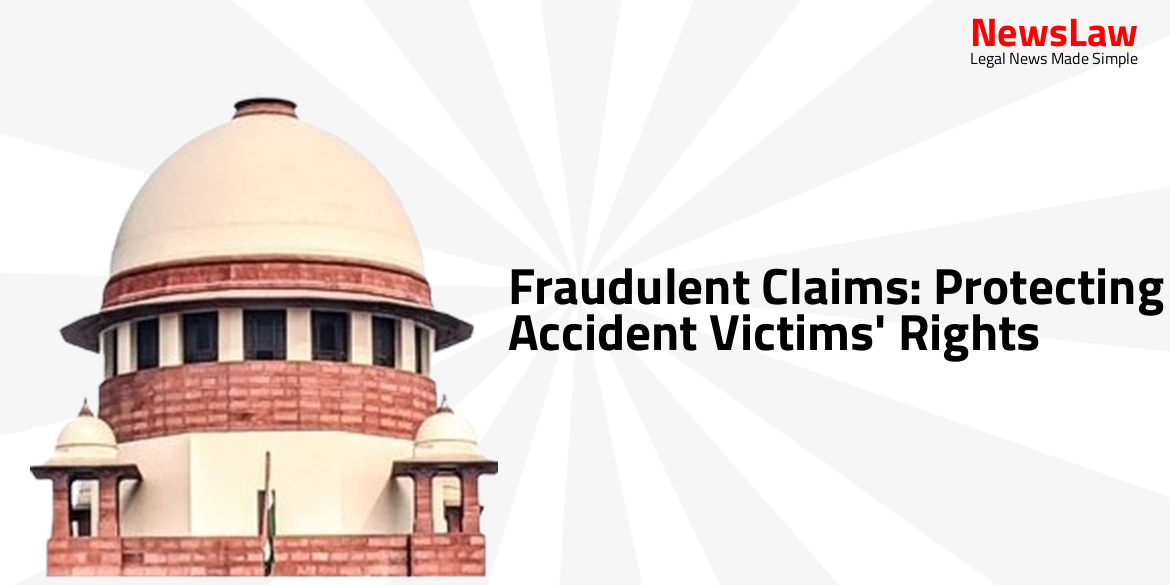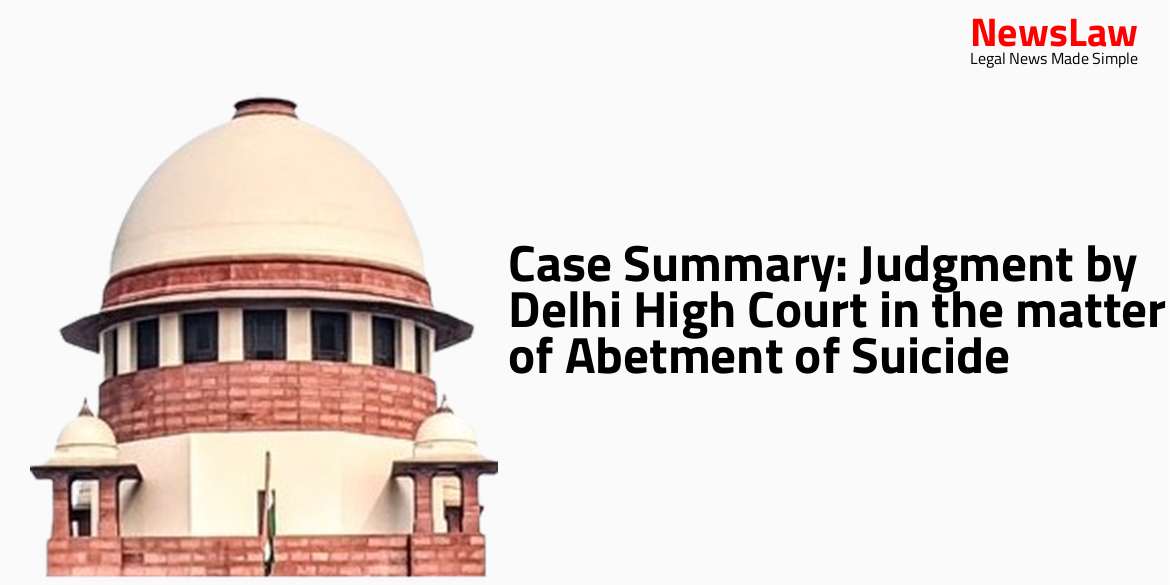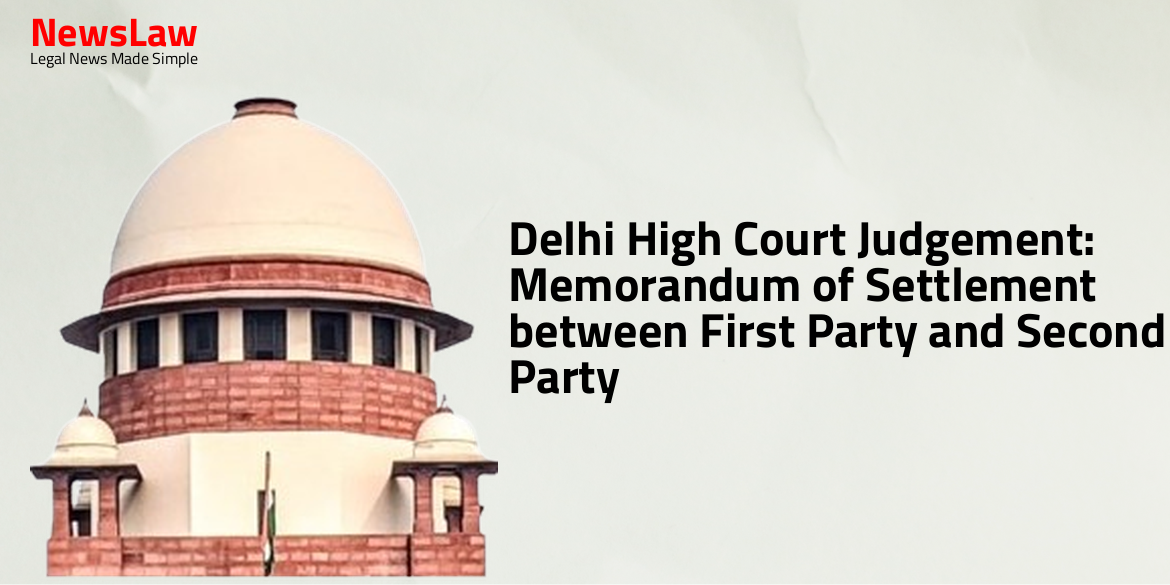Learn about the intriguing case between Arrow and GSPANN Technologies regarding Consultancy Agreements. The Delhi High Court’s judgment sheds light on crucial aspects of arbitration, non-solicitation clauses, and contract law. This case elucidates the complexities involved in business agreements and the legal ramifications of breach of contract. Stay tuned for insights into this high-profile legal battle.
Facts
- Petitioner entered into Consultancy Agreements with the respondent to provide services to Arrow and GSPANN Technologies.
- Respondent’s direct engagement with Arrow led to the association between Arrow and the petitioner being stopped.
- Petitioner entered into a new Consultancy Agreement with respondent to provide services to GSPANN Technologies after termination of the previous agreement with Arrow.
- Respondent raised objections regarding the validity of the agreements, stamping, and non-solicitation clause.
- Petitioner relied on a judgment stating that arbitration clause remains valid despite inadequate stamping.
- Analysis of Clause 7 of the Consultancy Agreement regarding Conflict of Interest and Non-solicitation was conducted.
- Legal notices were issued to respondent for breach of contract and damages.
- Petitioner invoked arbitration proceedings seeking appointment of a Sole Arbitrator.
- Allegations of breach of contract, violation of non-solicitation clause, and loss of business opportunities were made against the respondent.
- The contract was in abeyance but not terminated.
- Petitioner suffered monetary loss and damages due to respondent’s actions.
Analysis
- The Consultant is prohibited from engaging with any competitors of Muoro without written consent.
- The Consultant cannot solicit or encourage current or potential customers, employees, contractors, or consultants of Muoro or its affiliates for two years after the Agreement ends.
- There is a restriction on hiring or enticing any current or former employees, consultants, or contractors of Muoro or its affiliates for two years after the Agreement ends.
- The Consultant is required to dedicate their time, energy, and abilities to their duties as outlined in Exhibit A during the Agreement term.
- Non-solicitation clause restricts respondent for 2 years post-termination from soliciting work with petitioner’s competitor.
- Section 27 of Contract Act restricts lawful profession, trade, or business.
- Non-solicitation clause limited respondent’s rights but did not absolutely restrict.
- Scope, time, and geographical limitations of covenants are reasonable for business protection.
- Damages inadequate to compensate for breach, allowing injunctive relief.
- Section 27 bar not applicable when restriction between contracting parties.
- Termination of contract during subsistence disputed, to be determined by arbitrator.
- Merits of arguments should be raised before arbitrator.
- Confidential information of the employer can be protected post-employment period.
- Agreements not to carry on business, of which goodwill is sold, are exempt from Section 27.
- Contracts in restraint of trade are void unless exempt under specific circumstances.
- Covenants in restraint of trade are void unless they pass the test of ‘reasonableness’.
- Restrictions on employees inducing other employees not to leave their current employment are enforceable.
- Non-solicit clauses in employment agreements are valid if found reasonable and not against public policy.
- Negative covenants during employment can be legally enforceable if reasonable.
- Post-termination non-compete clauses are scrutinized for reasonableness.
- Courts take a stricter view of covenants in employment agreements than in other contracts.
- Exceptions can exist when limits on agreements restraining trade are deemed reasonable by the Court.
Decision
- Mr. Ajay Kohli, Advocate, Mobile No. 9910087765 appointed as the Sole Arbitrator
- Parties can raise objections before the Arbitrator
- Arbitrator must make necessary disclosures as per Section 12(1) of the Act, 1996
- Arbitrator must not be ineligible under Section 12(5) of the Act, 1996
- Arbitration under Delhi International Arbitration Centre, Delhi High Court
- Arbitrator’s fees to be decided as per Fourth Schedule of the Act, 1996 or with consent of parties
- Parties to contact Arbitrator within one week of Court
Case Title: VRENTIN TECH PRIVATE LIMITED Vs. UDIT GOGOI (2024:DHC:4153)
Case Number: ARB.P.-223/2024



